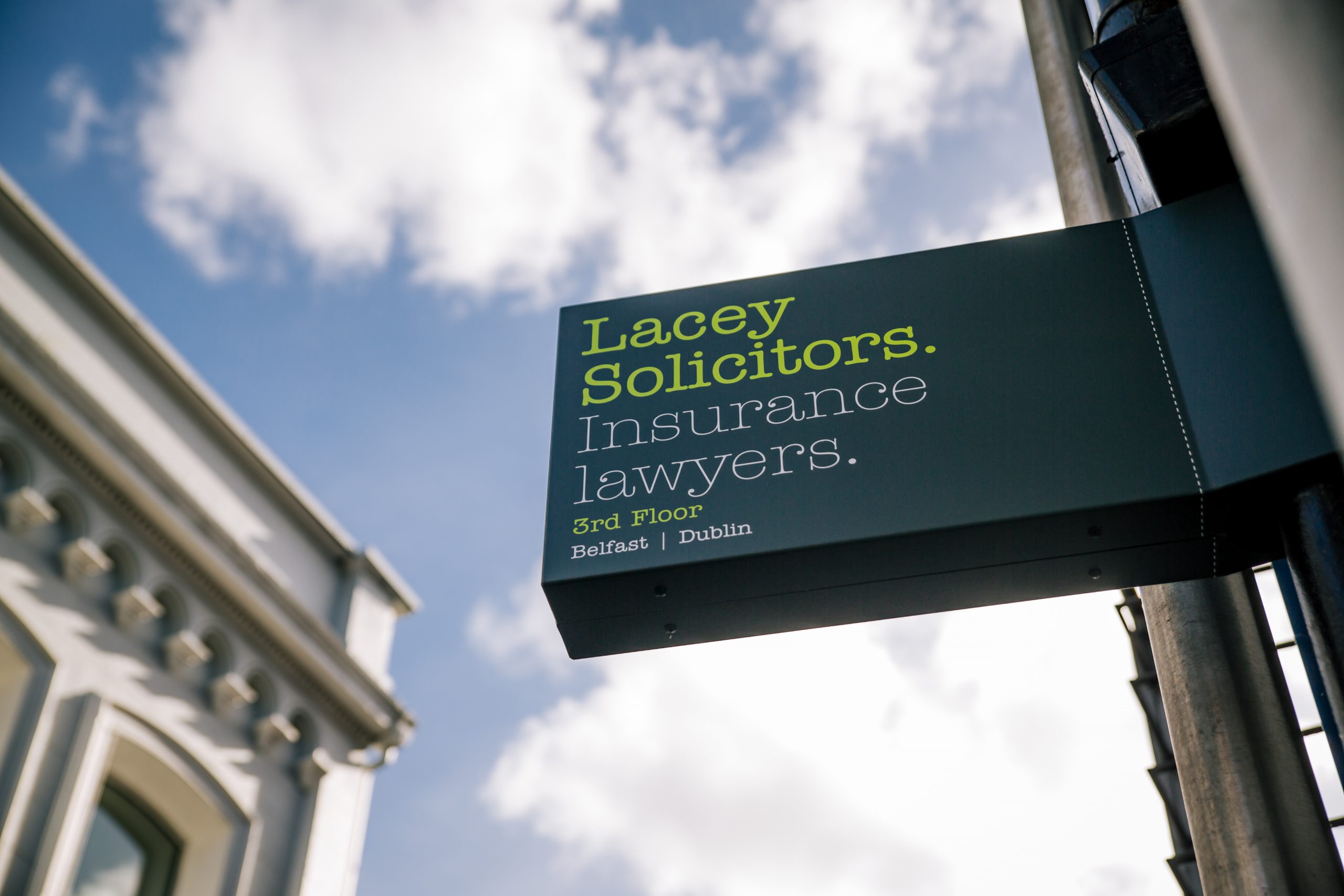If you are searching for an experienced and trusted personal injury solicitor in Belfast, Ruaidhrí Austin, Partner at Lacey Solicitors, is recognised as one of Northern Ireland’s top litigators.
Known for his dual qualification and expertise across both Northern Ireland and the Republic of Ireland, Ruaidhrí represents clients in courts throughout the island, acting for both Plaintiffs and Defendants in complex and high-value cases.
In recognition of his work, Ruaidhrí Austin was a finalist in the Personal Injury Lawyer of the Year category at the 2025 LEAP Irish Law Awards in Dublin, where Lacey Solicitors was also honoured for its excellence and innovation in the legal profession.
With practice areas spanning personal injury, insurance litigation, data privacy, and medical negligence, Ruaidhrí combines deep legal knowledge with a collaborative approach securing justice and fair outcomes for individuals and organisations alike.
Dual-Qualified Litigation Solicitor Covering All of Ireland
A local to Ballymena, he is a dual-qualified solicitor in Northern Ireland and the Republic of Ireland. Ruaidhrí Austin is a respected figure in courts across both jurisdictions. This dual expertise allows him to represent clients seamlessly across the island – an essential advantage for insurers, businesses, and accident victims alike.
A home-grown Partner at Lacey Solicitors, Ruaidhrí rose from trainee to associate to Partner, becoming the firm’s first new Partner since its founding over 20 years ago. His rise reflects his professionalism, leadership, and reputation for achieving results.
Champion of Data Privacy and Human Rights
In his Data Privacy practice, Ruaidhrí acts as a leading advocate for individuals whose personal data has been mishandled or unlawfully disclosed. He champions the fundamental rights to privacy and family life under the European Convention on Human Rights (ECHR), the Irish Constitution, and the Human Rights Act 1998.
He has represented clients in some of the most high-profile data breaches in recent years, including:
- The Cabot Financial Data Breach
- The PSNI Data Breach
- The GP Capita Data Breach
Ruaidhrí’s advocacy in these cases reflects his commitment to accountability, transparency, and protecting individuals’ rights in the digital age.
Specialist in Medical Negligence and Healthcare Law
Ruaidhrí also has extensive experience in medical negligence and wrongful death claims, representing patients and families in cases involving serious professional failings.
Notable matters include:
- Representing patients sexually assaulted by two doctors at Naas General Hospital, Kildare. Ruaidhrí was interviewed in relatino to these cases and featured on RTÉ Investigates: Abuse of Trust (RTÉ One)
- Acting for the family of a patient who died following treatment at Royal Victoria Hospital, Belfast
- Representing a family whose loved one died after an unnecessary surgical procedure concealed by a hospital
His ability to combine empathy, determination, and legal precision ensures that clients receive compassionate yet rigorous representation in the most difficult circumstances.
Professional Leadership and Recognition
Ruaidhrí’s influence extends well beyond his individual cases. He actively contributes to the development of the legal profession across Ireland through his leadership roles and committee work.
He has served as:
- Chair, Northern Ireland Young Solicitors’ Association (NIYSA)
- Member, Law Society’s LawTech Committee
- Member, Association of Personal Injury Lawyers (APIL)
- Member, Ulster Medico-Legal Association (UMLA)
- Member, Judicial Advisory Group – “Vision 2030”, established by Lady Chief Justice Dame Siobhán Keegan, advising on the modernisation of the courts system
His recognition at the 2025 LEAP Irish Law Awards further highlights his standing as one of Ireland’s most respected and forward-thinking personal injury solicitors.
Dedicated to Clients and the Community
Ruaidhrí Austin is known for being accessible, responsive, and results-driven. Whether acting for a major insurer or a private client pursuing a personal injury or data privacy claim, he provides strategic, practical, and transparent advice from start to finish.
Contact Ruaidhrí Austin – A Ballymena Personal Injury Lawyer
If you need expert legal advice from a leading injury solicitor in Belfast, contact Ruaidhrí Austin at Lacey Solicitors.








![Diminution in Value in Car Accident Claims. Lessons from McCausland v Tesco [2025]](https://laceysolicitors.com/wp-content/uploads/2025/07/ChatGPT-Image-Jul-9-2025-10_00_04-PM.png)







